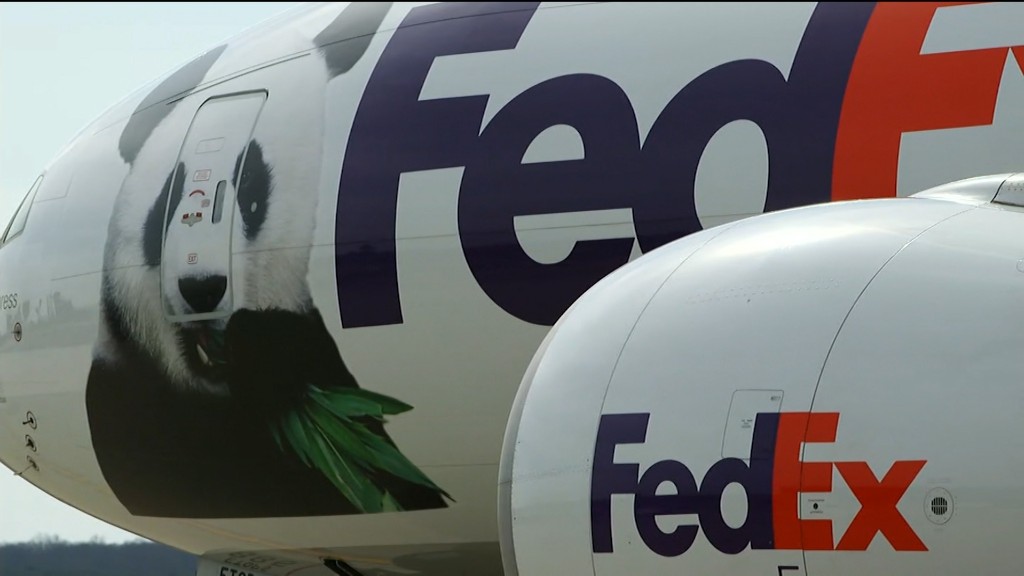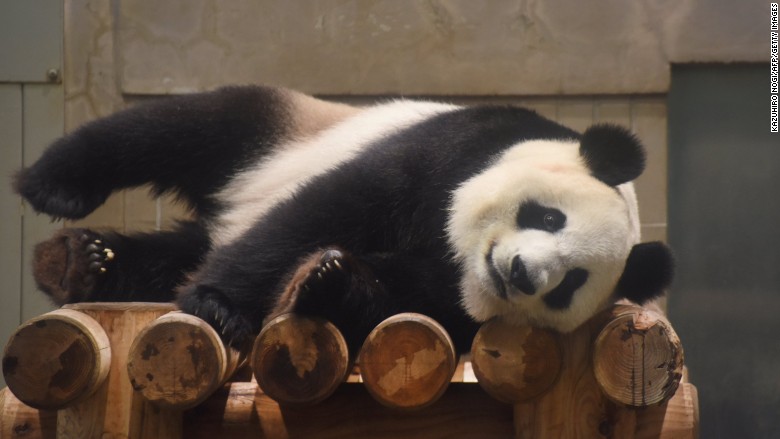
Call it "pandanomics."
News of the birth of a panda at a Tokyo zoo sent shares in two local restaurant operators soaring.
Ueno Zoo announced Monday that its giant panda Shin Shin gave birth to at least one cub -- the zoo's first in five years. That's prompted investors to bet on a baby panda boom for businesses in the area as visitors flock to see the new arrival.
Totenko, which specializes in Chinese restaurants, and Seiyoken, known for French dining, both have major branches near the zoo. Totenko surged as much as 38% in Tokyo trading Monday, ending the day 6.7% higher. Seiyoken jumped as much as 11.3% at one point, before closing up 6.5%.

The two companies' shares have been on a tear since news broke in February that Shin Shin and her partner, Ri Ri, were mating. Totenko's shares have risen about 30% since then; Seiyoken's are up around 21%.
Related: Panda's first flight: FedEx sends Bao Bao to China
Shin Shin also gave birth to a baby panda in 2012, but the cub died a week later.
She and Ri Ri arrived in Tokyo from China's Sichuan province in 2011. Decorations appeared on Tokyo streets as the two giant pandas were welcomed with great fanfare.
Ueno Zoo agreed to pay $950,000 a year for 10 years to lease them, with the money being donated to wildlife protection causes in China.
Related: China plans massive reserve for giant pandas
The pandas are a boon for Japan's tourism industry. According to one estimate cited by business publication Nikkei, the economic impact of the baby panda could be as much as 26.7 billion yen ($243 million).
Ueno Zoo first hosted pandas in 1972 after the signing of a peace treaty between Japan and China. Ling Ling, the last inhabitant, died in 2008.


